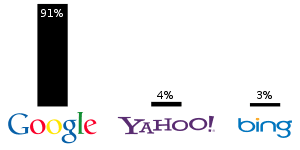DO machines speak? If so, do they have a constitutional right to free speech?
This may sound like a fanciful question, a matter of philosophy or science fiction. But it’s become a real issue with important consequences.
In today’s world, we have delegated many of our daily decisions to computers. On the drive to work, a GPS device suggests the best route; at your desk, Microsoft Word guesses at your misspellings, and Facebook recommends new friends. In the past few years, the suggestion has been made that when computers make such choices they are “speaking,” and enjoy the protections of the First Amendment.
This is a bad idea that threatens the government’s ability to oversee companies and protect consumers.
The argument that machines speak was first made in the context of Internet search. In 2003, in a civil suit brought by a firm dissatisfied with the ranking of Google’s search results, Google asserted that its search results were constitutionally protected speech. (In an unpublished opinion, the court ruled in Google’s favor.) And this year, facing increasing federal scrutiny, Google commissioned Eugene Volokh, a law professor at the University of California, Los Angeles, to draft a much broader and more elaborate version of the same argument. As Professor Volokh declares in his paper: “Google, Microsoft’s Bing, Yahoo! Search, and other search engines are speakers.”
To a non-lawyer the position may sound bizarre, but here is the logic. Take a newspaper advice columnist like Ann Landers: surely her answers to readers’ questions were a form of speech. Likewise, when you turn to Google with a question, the search engine must decide, at that moment, what “answers” to give, and in what order to put those answers. If such answers are speech, then any government efforts to regulate Google, like any efforts to bowdlerize Ann Landers, must be examined as censorship.
And that’s where theory hits reality. Consider that Google has attracted attention from both antitrust and consumer protection officials after accusations that it has used its dominance in search to hinder competitors and in some instances has not made clear the line between advertisement and results. Consider that the “decisions” made by Facebook’s computers may involve widely sharing your private information; or that the recommendations made by online markets like Amazon could one day serve as a means for disadvantaging competing publishers. Ordinarily, such practices could violate laws meant to protect consumers. But if we call computerized decisions “speech,” the judiciary must consider these laws as potential censorship, making the First Amendment, for these companies, a formidable anti-regulatory tool.
Via New York Times – Tim Wu
The Latest Streaming News: Free Speech for Computers updated minute-by-minute








